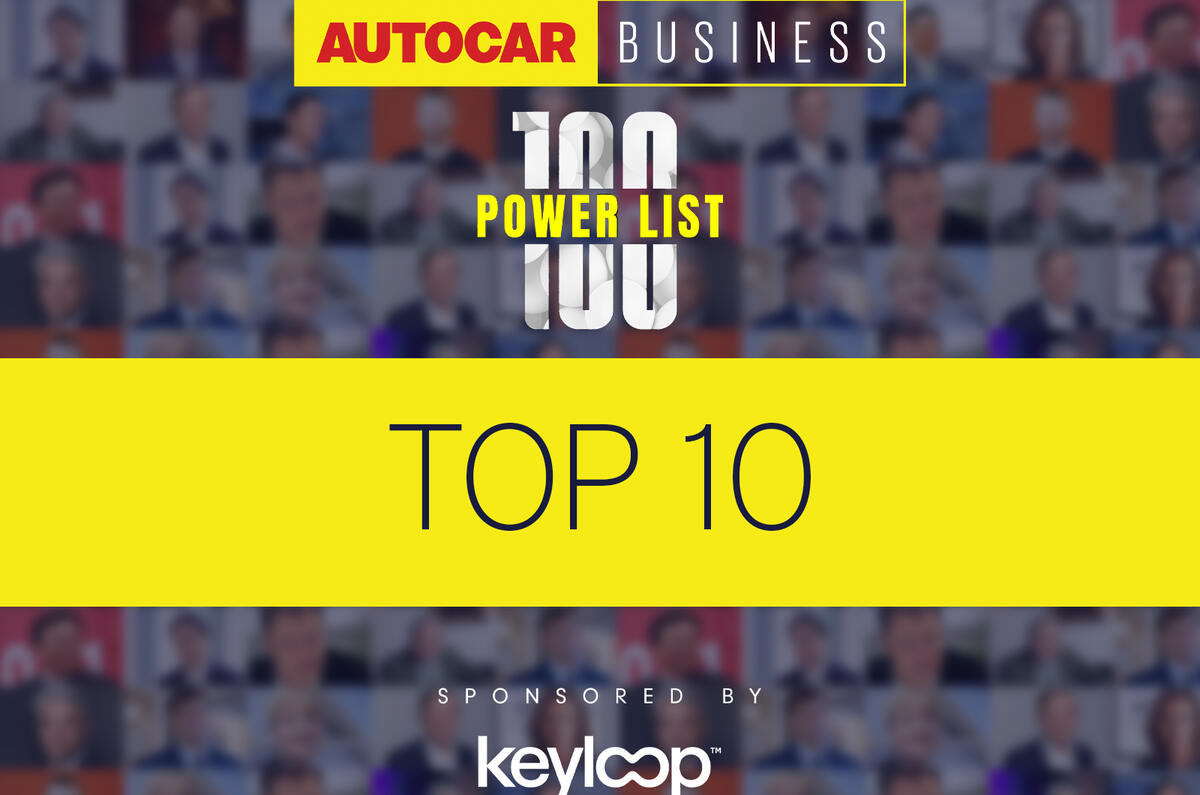Autocar Business's annual Power List 100 names the 100 most influential major movers and shakers in the automotive industry.
The Power List 100, sponsored by Keyloop, shows the importance of this industry globally: one that wields great power, but that power is constantly shifting.






Add your comment